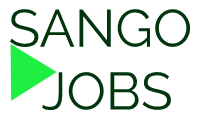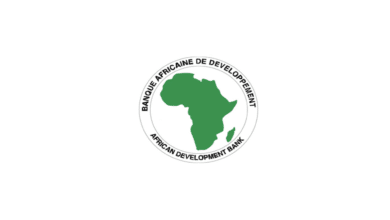How Governments can use Education as an Escape Route from Poverty
How Governments can use Education as an Escape Route from Poverty

Poverty is a significant challenge facing many individuals and families across the world. It is a complex issue that is multifaceted and requires comprehensive solutions from various sectors of society. Education is one of the critical tools that can be utilized in the fight against poverty.
It is an essential investment that can empower individuals, transform communities, and create a more prosperous future for all. Today, we will discuss how to use education as an escape route from poverty in your country.
How Governments can use Education as an Escape Route from Poverty
Below are the ways in which governments can use education as an escape route from poverty.
1. Invest in Early Childhood Education
Early childhood education is the foundation for a child’s future success in education and life. Investing in early childhood education can have a significant impact on children’s development, including cognitive, social, and emotional development. It lays the groundwork for lifelong learning, sets children on a path to success in school, and helps break the cycle of poverty.
Governments, non-governmental organizations (NGOs), and private entities can invest in early childhood education initiatives such as pre-school programs, daycare centers, and community-based programs that provide young children with access to quality education. These programs should also integrate health and nutrition services to address other challenges that affect children’s well-being.
2. Increase Access to Education for All
Access to education is a fundamental human right that should be available to all individuals, regardless of their social or economic status. However, many children in impoverished communities often face barriers to education, including lack of school infrastructure, limited resources, and the inability to afford school fees.
Governments, NGOs, and private organizations can work together to address these challenges by investing in school infrastructure, providing scholarships and grants to students in need, and implementing policies and programs that promote equal access to educational opportunities.
3. Promote Vocational and Technical Education
While traditional academic education is critical, vocational and technical education can provide valuable skills that can help individuals escape poverty. Vocational education trains individuals in a specific trade, such as carpentry, plumbing, or welding, while technical education trains individuals in information technology, graphic design, and other specialized fields.
Governments, NGOs, and private organizations can partner with vocational and technical training institutions to provide individuals with the necessary skills to secure employment and improve their economic situation. These programs should be tailored to the local job market to ensure that graduates can meet the demand for skilled labor in their communities.
4. Encourage Entrepreneurship Education
Entrepreneurship education helps individuals to acquire the skills, knowledge, and mindset required to start and manage a business. It is an essential tool that can help individuals create job opportunities for themselves and others, generate income, and contribute to their community’s economic growth.
Governments, NGOs, and private organizations can invest in entrepreneurship education programs that provide individuals with the necessary skills to start and manage a business. These programs should be structured to provide both theoretical and practical knowledge, including business planning, financial management, and marketing.
5. Promote Adult Education
Adult education programs provide individuals who missed out on formal education or dropped out of school with another chance to improve their lives. Adult education programs can help individuals gain confidence, improve their literacy and numeracy skills, and provide them with the necessary skills to secure employment or start a business.
Governments, NGOs, and private organizations can invest in adult education programs that provide individuals with a flexible learning environment, including online and blended learning opportunities. These programs should also be tailored to the specific needs of the learners, including language barriers and accessibility challenges.
Examples of Organizations that Promote Education in Countries
There are a lot of organizations that promote education in different countries. Today we will just list a few of these as examples and describe how they promote education.
1. UNICEF
UNICEF is an organization that provides basic education to children in developing countries. The organization works with governments and other partners to ensure that children have access to quality education that is inclusive and equitable.
2. World Education
World Education is a global nonprofit organization that provides education programs to people of all ages in developing countries. The organization’s programs are designed to empower people to improve their lives and their communities through education and training.
3. Teach for All
Teach for All is an international network of organizations that recruit and train talented young people from around the world to teach in high-need schools in their own countries. The program seeks to promote educational equity and excellence by bringing talented individuals into the classroom.
4. Room to Read
Room to Read is a nonprofit organization that aims to improve literacy and gender equality in education by providing children in low-income countries with access to high-quality education and resources. The organization focuses on providing access to books, building libraries, and improving primary education.
5. Khan Academy
Khan Academy is a not-for-profit organization that offers free online education in multiple languages to people all over the world. The organization provides courses in a wide range of subjects, including math, science, economics, and humanities. Khan Academy’s mission is to provide education to everyone, everywhere, for free.
Conclusion
Education is a powerful tool that can help individuals escape poverty and create a brighter future for themselves and their communities. Investing in education initiatives, including early childhood education, vocational and technical education, entrepreneurship education, and adult education, can help individuals acquire the skills and knowledge they need to improve their economic situation. Governments, NGOs, and private organizations should work together to promote equal access to education opportunities and provide support to individuals in need. Together, we can use education as an escape route from poverty in our countries.
FOLLOW SANGO JOBS ON SOCIAL MEDIA CHANNELS BELOW
LINKEDIN, WHATSAPP, TELEGRAM and FACEBOOK
CHECK: HOW TO EFFECTIVELY SEARCH FOR JOBS ON LINKEDIN
12 GRAVE MISTAKES FOR JOB SEEKERS – avoid this and land your next job




